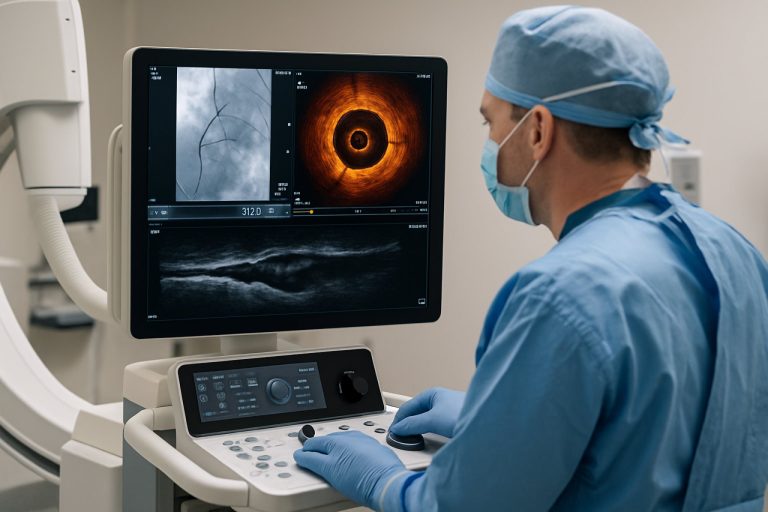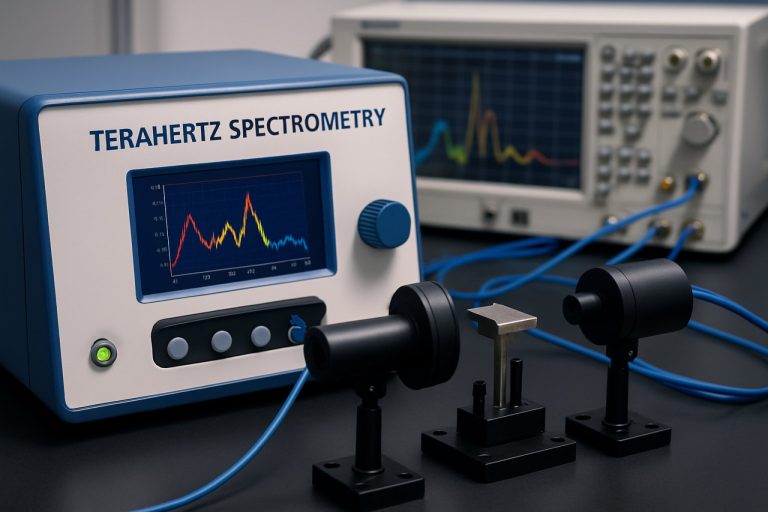
Immunotherapeutic Microbiome Modulation in 2025: How Cutting-Edge Microbiome Engineering Is Transforming Immune Therapies and Driving Explosive Market Expansion. Discover the Breakthroughs Shaping the Next Five Years.
- Executive Summary: Key Insights & 2025 Highlights
- Market Overview: Defining Immunotherapeutic Microbiome Modulation
- Current Market Size & 2025–2030 Growth Forecast (CAGR: 30–35%)
- Key Drivers: Scientific Advances, Unmet Needs, and Regulatory Momentum
- Technology Landscape: Microbiome Engineering, Delivery Platforms, and Biomarker Discovery
- Pipeline Analysis: Leading Companies, Startups, and Clinical Trials
- Competitive Landscape: Strategic Partnerships, M&A, and Investment Trends
- Challenges & Barriers: Scientific, Regulatory, and Commercial Hurdles
- Future Outlook: Disruptive Innovations and Market Opportunities Through 2030
- Strategic Recommendations for Stakeholders
- Sources & References
Executive Summary: Key Insights & 2025 Highlights
Immunotherapeutic microbiome modulation represents a rapidly advancing frontier in biomedical science, leveraging the intricate relationship between the human microbiome and the immune system to develop novel therapies for a range of diseases. In 2025, the field is characterized by significant breakthroughs in both mechanistic understanding and clinical application, with a focus on precision interventions that harness or reshape the microbiome to enhance immune responses or mitigate immune-mediated disorders.
Key insights from 2025 highlight the transition of microbiome-based immunotherapies from early-stage research to late-phase clinical trials, particularly in oncology, autoimmune diseases, and infectious disease management. Leading biopharmaceutical companies and research institutions, such as Pfizer Inc., Seres Therapeutics, Inc., and U.S. Food and Drug Administration (FDA), have played pivotal roles in advancing regulatory frameworks and supporting the translation of microbiome science into approved therapeutics.
Among the most notable highlights for 2025:
- Several live biotherapeutic products (LBPs) targeting immune modulation have reached pivotal Phase III trials, with early data indicating improved efficacy and safety profiles compared to conventional immunotherapies.
- Personalized microbiome interventions, including autologous fecal microbiota transplantation (FMT) and engineered microbial consortia, are being tailored to individual immune phenotypes, enhancing therapeutic precision and minimizing adverse effects.
- Collaborations between academic centers and industry leaders, such as GSK plc and Merck & Co., Inc., have accelerated the development of companion diagnostics that predict patient response to immunotherapeutic microbiome modulation.
- Regulatory agencies, including the European Medicines Agency (EMA), have issued updated guidance on the clinical evaluation and manufacturing standards for microbiome-based immunotherapies, fostering greater confidence among stakeholders.
Looking ahead, the convergence of multi-omics technologies, artificial intelligence, and advanced manufacturing is expected to further refine the design and delivery of immunotherapeutic microbiome interventions. As the field matures, 2025 stands as a pivotal year, marking the shift from proof-of-concept to real-world impact in patient care and disease management.
Market Overview: Defining Immunotherapeutic Microbiome Modulation
Immunotherapeutic microbiome modulation refers to the strategic alteration of the human microbiome—primarily the communities of bacteria, viruses, fungi, and other microorganisms residing in and on the body—to influence immune system function for therapeutic benefit. This approach leverages the intricate relationship between the microbiome and the immune system, aiming to enhance, suppress, or rebalance immune responses in the context of various diseases, including cancer, autoimmune disorders, and infectious diseases.
The market for immunotherapeutic microbiome modulation is rapidly evolving, driven by advances in microbiome research, next-generation sequencing technologies, and a growing understanding of host-microbe interactions. In 2025, the sector encompasses a range of modalities, including live biotherapeutic products (LBPs), engineered probiotics, prebiotics, postbiotics, and microbiome-derived metabolites. These interventions are being developed both as standalone therapies and as adjuncts to existing immunotherapies, such as immune checkpoint inhibitors and CAR-T cell therapies.
Key players in this market include biotechnology companies, pharmaceutical firms, and academic research institutions. Notable industry participants such as Seres Therapeutics, Inc., Ferring Pharmaceuticals, and Enterome are advancing clinical-stage candidates targeting conditions like recurrent Clostridioides difficile infection, inflammatory bowel disease, and certain cancers. Collaborations between these companies and major pharmaceutical organizations, such as Bristol Myers Squibb and Merck & Co., Inc., underscore the growing recognition of the microbiome’s role in immunotherapy outcomes.
Regulatory agencies, including the U.S. Food and Drug Administration (FDA) and the European Medicines Agency (EMA), are actively shaping the development landscape by issuing guidance on the classification, manufacturing, and clinical evaluation of microbiome-based therapeutics. This regulatory clarity is fostering innovation while ensuring patient safety and product efficacy.
Overall, the immunotherapeutic microbiome modulation market in 2025 is characterized by robust scientific momentum, increasing investment, and a pipeline of novel products poised to transform the management of immune-mediated diseases. As research continues to elucidate the mechanisms linking the microbiome and immunity, the sector is expected to expand, offering new hope for patients with challenging conditions.
Current Market Size & 2025–2030 Growth Forecast (CAGR: 30–35%)
The global market for immunotherapeutic microbiome modulation is experiencing rapid expansion, driven by advances in microbiome science, increasing investment in immunotherapy, and a growing recognition of the microbiome’s role in immune system regulation. As of 2025, the market size is estimated to be in the range of several hundred million USD, with North America and Europe leading in research, clinical trials, and commercialization efforts. Key players include biotechnology firms, pharmaceutical companies, and academic spin-offs focusing on live biotherapeutic products, engineered microbial consortia, and microbiome-derived metabolites.
The sector’s robust growth is underpinned by a surge in clinical-stage programs targeting oncology, autoimmune diseases, and infectious diseases. Regulatory agencies such as the U.S. Food and Drug Administration and the European Medicines Agency have established frameworks for the development and approval of microbiome-based therapeutics, further accelerating market entry and investor confidence.
From 2025 to 2030, the immunotherapeutic microbiome modulation market is projected to grow at a compound annual growth rate (CAGR) of 30–35%. This exceptional growth rate is fueled by several factors:
- Increasing prevalence of immune-mediated diseases and cancers responsive to microbiome modulation.
- Expanding pipeline of clinical trials and positive early-phase results, particularly in combination with immune checkpoint inhibitors.
- Strategic partnerships between biotech innovators and major pharmaceutical companies, such as those announced by Pfizer Inc. and F. Hoffmann-La Roche Ltd, to co-develop and commercialize microbiome-based immunotherapies.
- Growing investment from venture capital and public markets, as evidenced by funding rounds and IPOs in the sector.
- Advancements in next-generation sequencing and bioinformatics, enabling precise patient stratification and personalized microbiome interventions.
By 2030, the market is expected to reach multi-billion-dollar valuations, with a diversified portfolio of approved products and a broader range of indications. The continued evolution of regulatory guidance and the integration of real-world evidence will further support the adoption and reimbursement of immunotherapeutic microbiome modulation therapies worldwide.
Key Drivers: Scientific Advances, Unmet Needs, and Regulatory Momentum
The field of immunotherapeutic microbiome modulation is rapidly evolving, propelled by a convergence of scientific breakthroughs, persistent unmet clinical needs, and supportive regulatory developments. Recent advances in high-throughput sequencing, metabolomics, and computational biology have deepened our understanding of the complex interactions between the human microbiome and the immune system. These insights have enabled the identification of specific microbial strains and metabolites that can modulate immune responses, paving the way for targeted interventions in conditions such as cancer, autoimmune diseases, and infections. For example, research collaborations and clinical programs at institutions like Memorial Sloan Kettering Cancer Center and The University of Texas MD Anderson Cancer Center are exploring how manipulating the gut microbiome can enhance the efficacy of immune checkpoint inhibitors in oncology.
Despite the promise, there remains a significant unmet need for effective, safe, and durable immunotherapies, particularly for patients who do not respond to current treatments or experience severe side effects. Microbiome-based approaches offer a novel mechanism of action, with the potential to personalize therapy and reduce toxicity. This is especially relevant in diseases where conventional immunotherapies have limited success, such as certain solid tumors and chronic inflammatory disorders. Companies like Seres Therapeutics, Inc. and Ferring Pharmaceuticals are advancing live biotherapeutic products aimed at restoring healthy microbial balance and modulating immune function, reflecting the growing industry commitment to addressing these gaps.
Regulatory agencies are increasingly recognizing the therapeutic potential of microbiome modulation. The U.S. Food and Drug Administration (U.S. Food and Drug Administration) and the European Medicines Agency (European Medicines Agency) have issued guidance documents and established frameworks for the development and approval of live biotherapeutic products and fecal microbiota transplantation. These regulatory efforts are fostering innovation while ensuring patient safety, and they signal a shift toward greater acceptance of microbiome-based immunotherapies in mainstream medicine. As scientific, clinical, and regulatory momentum continues to build, immunotherapeutic microbiome modulation is poised to become a cornerstone of precision medicine by 2025.
Technology Landscape: Microbiome Engineering, Delivery Platforms, and Biomarker Discovery
The technology landscape for immunotherapeutic microbiome modulation in 2025 is characterized by rapid advancements in microbiome engineering, innovative delivery platforms, and sophisticated biomarker discovery. These developments are reshaping how the human microbiome is harnessed to modulate immune responses, particularly in the context of cancer, autoimmune diseases, and infectious disorders.
Microbiome engineering has evolved from simple fecal microbiota transplantation to the rational design of next-generation probiotics and live biotherapeutic products (LBPs). Companies such as SNIPR BIOME and Synthego are leveraging CRISPR-based genome editing to create precision-engineered bacterial strains that can modulate immune pathways or deliver therapeutic payloads directly within the gut. These engineered consortia are designed to outcompete pathogenic microbes, restore microbial balance, and produce immunomodulatory metabolites.
Delivery platforms have also seen significant innovation. Encapsulation technologies, such as those developed by Evelo Biosciences, protect live microbes from gastric acid and bile, ensuring targeted release in the intestine. Oral, rectal, and even inhalable formulations are being explored to optimize the delivery of microbiome-based therapeutics to specific mucosal sites. Additionally, microencapsulation and hydrogel-based systems are being refined to enhance the viability and colonization efficiency of therapeutic microbes.
Biomarker discovery is a critical enabler for precision immunotherapeutic microbiome modulation. Advanced multi-omics platforms—integrating metagenomics, metabolomics, and transcriptomics—are being used by organizations like The Human Microbiome Project to identify microbial signatures predictive of immune response or disease progression. These biomarkers inform patient stratification, therapeutic selection, and real-time monitoring of treatment efficacy. Machine learning algorithms are increasingly applied to large-scale microbiome datasets to uncover novel associations between microbial taxa, metabolites, and immune phenotypes.
Collectively, these technological advances are accelerating the translation of microbiome science into clinically actionable immunotherapies. The integration of engineered microbial therapeutics, robust delivery systems, and validated biomarkers is expected to drive the next wave of personalized medicine, offering new hope for patients with immune-mediated diseases.
Pipeline Analysis: Leading Companies, Startups, and Clinical Trials
The field of immunotherapeutic microbiome modulation is rapidly advancing, with a dynamic pipeline of companies, startups, and clinical trials shaping its future. This approach leverages the human microbiome to modulate immune responses, aiming to treat conditions such as cancer, autoimmune diseases, and infections. The pipeline is characterized by a blend of established biotechnology firms and innovative startups, each contributing unique platforms and therapeutic candidates.
Among the leading companies, Seres Therapeutics, Inc. stands out with its focus on microbiome therapeutics for infectious diseases and immunological disorders. Their flagship product, SER-109, has advanced through late-stage clinical trials for recurrent Clostridioides difficile infection, and the company is expanding into immuno-oncology applications. Similarly, Ferring Pharmaceuticals has made significant strides with its acquisition of Rebiotix, developing RBX2660, a microbiota-based therapy targeting gut-mediated immune modulation.
Startups are also driving innovation in this space. SNIPR Biome utilizes CRISPR-based technologies to selectively target pathogenic bacteria, aiming to reshape the microbiome and influence immune responses. Enterome is developing small-molecule and peptide-based immunotherapies derived from microbiome science, with clinical programs in cancer and inflammatory diseases. Second Genome is another notable player, focusing on identifying microbiome-derived molecules that modulate immune pathways, with candidates in early-phase clinical trials for oncology and inflammatory conditions.
The clinical trial landscape is robust, with numerous studies registered in 2025 evaluating microbiome-based immunotherapies. Trials range from fecal microbiota transplantation (FMT) in combination with immune checkpoint inhibitors for cancer, to live biotherapeutic products designed to enhance immune tolerance in autoimmune diseases. For example, ClinicalTrials.gov lists multiple ongoing Phase I and II trials investigating the safety and efficacy of microbiome modulators in conjunction with standard immunotherapies for melanoma, colorectal cancer, and inflammatory bowel disease.
Overall, the pipeline for immunotherapeutic microbiome modulation is marked by a collaborative ecosystem of established companies, agile startups, and a growing body of clinical evidence. As these therapies progress through clinical development, they hold promise for transforming the management of immune-mediated diseases by harnessing the power of the microbiome.
Competitive Landscape: Strategic Partnerships, M&A, and Investment Trends
The competitive landscape of immunotherapeutic microbiome modulation in 2025 is characterized by a dynamic interplay of strategic partnerships, mergers and acquisitions (M&A), and robust investment activity. As the field matures, biopharmaceutical companies, biotechnology startups, and established healthcare organizations are increasingly collaborating to accelerate the development and commercialization of microbiome-based immunotherapies.
Strategic partnerships have become a cornerstone for innovation in this sector. Leading pharmaceutical companies such as Pfizer Inc. and F. Hoffmann-La Roche Ltd have entered into collaborations with microbiome-focused biotech firms to leverage proprietary platforms and expand their immunotherapy pipelines. These alliances often focus on co-developing novel therapeutics targeting immune-mediated diseases, including cancer and autoimmune disorders, by modulating the gut microbiota to enhance immune responses.
M&A activity has also intensified, with larger players acquiring innovative startups to gain access to advanced microbiome modulation technologies and intellectual property. For example, Takeda Pharmaceutical Company Limited has made strategic acquisitions to strengthen its position in microbiome therapeutics, integrating new assets into its immunology portfolio. Such moves are driven by the recognition that microbiome-based interventions can complement or enhance existing immunotherapeutic modalities, offering differentiated treatment options.
Investment trends reflect growing confidence in the commercial potential of immunotherapeutic microbiome modulation. Venture capital and corporate investment have surged, with funding rounds supporting clinical development, manufacturing scale-up, and regulatory advancement. Organizations like GlaxoSmithKline plc have established dedicated investment arms to identify and nurture promising microbiome startups, while public-private partnerships are fostering translational research and early-stage innovation.
Overall, the competitive landscape in 2025 is marked by a convergence of scientific expertise, financial resources, and strategic intent. Companies are increasingly recognizing the value of collaborative ecosystems to overcome technical and regulatory challenges, accelerate time-to-market, and ultimately deliver transformative immunotherapeutic solutions to patients. This trend is expected to continue as the clinical and commercial viability of microbiome modulation becomes further established.
Challenges & Barriers: Scientific, Regulatory, and Commercial Hurdles
Immunotherapeutic microbiome modulation—leveraging the human microbiota to enhance or regulate immune responses—holds significant promise for treating a range of diseases, including cancer, autoimmune disorders, and infections. However, the field faces substantial scientific, regulatory, and commercial challenges that must be addressed to realize its full therapeutic potential.
Scientific Hurdles: The complexity and individuality of the human microbiome present major scientific barriers. Inter-individual variability in microbiome composition and function complicates the identification of universal therapeutic targets and biomarkers. Additionally, the mechanisms by which specific microbial taxa or metabolites modulate immune responses remain incompletely understood, making it difficult to design precise interventions. Preclinical models often fail to recapitulate the intricacies of human-microbiome-immune system interactions, limiting the predictive value of animal studies for clinical outcomes.
Regulatory Barriers: Regulatory frameworks for microbiome-based immunotherapies are still evolving. Agencies such as the U.S. Food and Drug Administration and the European Medicines Agency face challenges in classifying these products, which may be considered drugs, biologics, or live biotherapeutic products depending on their composition and intended use. Standardizing manufacturing processes, ensuring product consistency, and establishing robust quality control measures are particularly difficult for live microbial therapeutics. Furthermore, the lack of established clinical endpoints and validated surrogate markers for efficacy and safety complicates the design and approval of clinical trials.
Commercial Hurdles: From a commercial perspective, the scalability and reproducibility of microbiome-based products remain significant obstacles. Manufacturing live microbial therapeutics at scale while maintaining viability and stability is technically demanding. Intellectual property protection is also complex, as naturally occurring microbial strains may not be patentable, and proprietary formulations or delivery methods must be carefully developed. Additionally, the market for immunotherapeutic microbiome modulation is still nascent, with limited reimbursement pathways and uncertain demand, making it challenging for companies to attract investment and bring products to market. Companies such as Seres Therapeutics, Inc. and Ferring Pharmaceuticals are among those navigating these commercial and regulatory landscapes.
Addressing these scientific, regulatory, and commercial barriers will be critical for the successful translation of immunotherapeutic microbiome modulation from research to clinical practice in 2025 and beyond.
Future Outlook: Disruptive Innovations and Market Opportunities Through 2030
The future of immunotherapeutic microbiome modulation is poised for significant transformation through 2030, driven by disruptive innovations and expanding market opportunities. As research deepens our understanding of the gut-immune axis, next-generation therapies are moving beyond traditional probiotics and fecal microbiota transplantation toward precision-engineered microbial consortia and live biotherapeutic products (LBPs). These advances are being accelerated by breakthroughs in synthetic biology, metagenomics, and artificial intelligence, enabling the design of microbial interventions tailored to individual immune profiles and disease states.
One of the most promising areas is the integration of microbiome modulation with cancer immunotherapy. Companies such as Seres Therapeutics, Inc. and Synthego Corporation are developing LBPs that can enhance the efficacy of immune checkpoint inhibitors by reshaping the gut microbiota to favor anti-tumor immune responses. Similarly, partnerships between pharmaceutical giants and microbiome startups are accelerating the translation of preclinical findings into clinical applications, with a focus on autoimmune diseases, allergies, and infectious diseases.
Regulatory frameworks are also evolving to accommodate these novel therapies. The U.S. Food and Drug Administration (U.S. Food and Drug Administration) and the European Medicines Agency (European Medicines Agency) are actively developing guidelines for the approval and monitoring of LBPs, which is expected to streamline market entry and foster investor confidence. This regulatory clarity is likely to catalyze further innovation and commercialization.
Looking ahead, the convergence of multi-omics data, machine learning, and personalized medicine will enable the identification of microbial signatures predictive of therapeutic response. This will open new market opportunities in companion diagnostics and patient stratification, allowing for more targeted and effective immunotherapies. Additionally, the expansion of direct-to-consumer microbiome testing and digital health platforms is expected to drive patient engagement and data collection, further fueling research and development.
By 2030, immunotherapeutic microbiome modulation is anticipated to become a cornerstone of precision medicine, with a robust pipeline of products addressing a wide spectrum of immune-mediated conditions. The sector’s growth will be underpinned by continued scientific innovation, regulatory support, and strategic collaborations across the biotechnology and pharmaceutical industries.
Strategic Recommendations for Stakeholders
As the field of immunotherapeutic microbiome modulation advances, stakeholders—including pharmaceutical companies, biotechnology firms, healthcare providers, and regulatory agencies—must adopt strategic approaches to maximize therapeutic potential and ensure patient safety. Below are key recommendations for these stakeholders in 2025:
- Invest in Rigorous Clinical Validation: Companies should prioritize robust, multi-phase clinical trials to establish the efficacy and safety of microbiome-based immunotherapies. Collaborations with leading academic institutions and clinical research organizations can accelerate the generation of high-quality evidence, as exemplified by partnerships seen at Pfizer Inc. and F. Hoffmann-La Roche Ltd.
- Foster Regulatory Engagement: Early and ongoing dialogue with regulatory bodies such as the U.S. Food and Drug Administration and the European Medicines Agency is essential. Stakeholders should contribute to the development of clear guidelines for microbiome-based products, addressing issues like product standardization, manufacturing controls, and long-term monitoring.
- Advance Precision Medicine Approaches: Leveraging advances in metagenomics and bioinformatics, stakeholders should develop personalized immunotherapeutic strategies tailored to individual microbiome profiles. This approach, championed by innovators such as Seres Therapeutics, Inc., can enhance treatment efficacy and minimize adverse effects.
- Promote Cross-Sector Collaboration: Building consortia that include industry, academia, and healthcare systems can facilitate data sharing, harmonize methodologies, and accelerate innovation. Initiatives like those led by the Human Microbiome Project demonstrate the value of collaborative research in this domain.
- Educate Healthcare Providers and Patients: Stakeholders should invest in educational programs to inform clinicians and patients about the benefits, limitations, and safety considerations of immunotherapeutic microbiome modulation. This will support informed decision-making and foster trust in emerging therapies.
- Address Ethical and Equity Considerations: Ensuring equitable access to novel therapies and addressing privacy concerns related to microbiome data are critical. Stakeholders should work with organizations such as the World Health Organization to develop ethical frameworks and global access strategies.
By implementing these strategic recommendations, stakeholders can help shape a responsible, innovative, and patient-centered future for immunotherapeutic microbiome modulation.
Sources & References
- GSK plc
- Merck & Co., Inc.
- European Medicines Agency (EMA)
- Enterome
- Bristol Myers Squibb
- F. Hoffmann-La Roche Ltd
- Memorial Sloan Kettering Cancer Center
- The University of Texas MD Anderson Cancer Center
- Seres Therapeutics, Inc.
- Synthego
- The Human Microbiome Project
- ClinicalTrials.gov
- Takeda Pharmaceutical Company Limited
- World Health Organization



